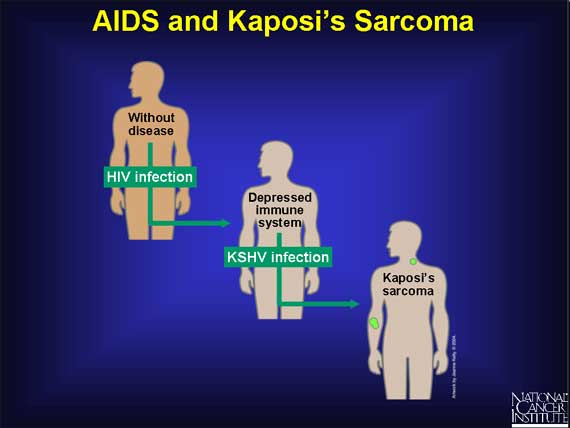|
People who develop AIDS after being infected with the human immunodeficiency virus (HIV) are at high risk for developing a specific type of cancer called Kaposi's sarcoma. Kaposi's sarcoma is a malignant tumor of blood vessels located in the skin. This type of cancer is not directly caused by HIV infection. Instead, HIV causes an immune deficiency that makes people more susceptible to viral infection. Infection by a virus called KSHV (Kaposi's sarcoma-associated herpesvirus) then appears to stimulate the development of Kaposi's sarcoma.

< Previous | Index | Next Slide > |